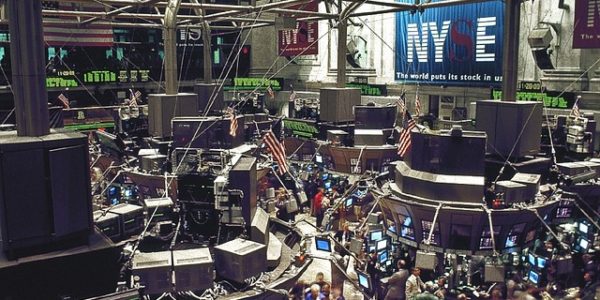We know a thing or two about automation. When you specialize in industrial motion control service and repair, you tend to get pretty comfortable with how industrial automation works. That’s why you should call us if you ever need support for Indramat motion control systems. Whether you need a factory reman for your servo motor, a replacement servo drive, or you just need support for your controller, we can help. Of course, industrial automation isn’t the only type of automation out there. Artificial intelligence is another important type of automation. A recent Smithsonian article examined the relationship between AI and Wall Street.
The allure of artificial intelligence
While industrial automation is one of the most worthwhile uses of automation today, artificial intelligence might be the most fascinating. We’ve all caught glimpses of advanced AI in science fiction films, shows, and literature. Fiction tells us that machines will one day engage in meaningful conversation and decision making entirely through artificial intelligence. Machines, robots, and systems won’t rely on precise instructions from users, but will instead automate the decision making process. It’s the thought of advanced AI that enthralls researchers and enamors the general public.
But AI isn’t stuck in science fiction. Artificial intelligence is a rapidly advancing type of automation, and it’s having a huge impact on our lives. Artificial intelligence is becoming more sophisticated – and we’re finding more uses for AI – on a regular basis. However, AI is nowhere near as advanced as what we see in science fiction. It’s fine for automating simple tasks with clearly defined rules and consistencies, but AI can’t be used for something that’s wildly unpredictable and constantly changing. We can’t use AI for something like the stock market, right?
Can AI top humans on Wall Street?
Hedge funds using software and algorithms to get an edge over the competition is nothing new, but now – for the first time – there are AI hedge funds, relying on machine learning and artificial intelligence without human input. These groups boast that they can deliver deeper analysis of the market than humans can provide, and that they can do so more quickly.
One of the biggest advantages that AI firms have over other firms is the sheer amount of data that can be analyzed. Unlike human brains, machines can simultaneously process hundreds of thousands of data points for a company. So far the results for AI funds have been good, and there’s some anecdotal evidence to suggest that these AI hedge funds can be successful. However, it’s too soon to say whether these AI funds are actually better than hedge funds that rely on human decision-making.



